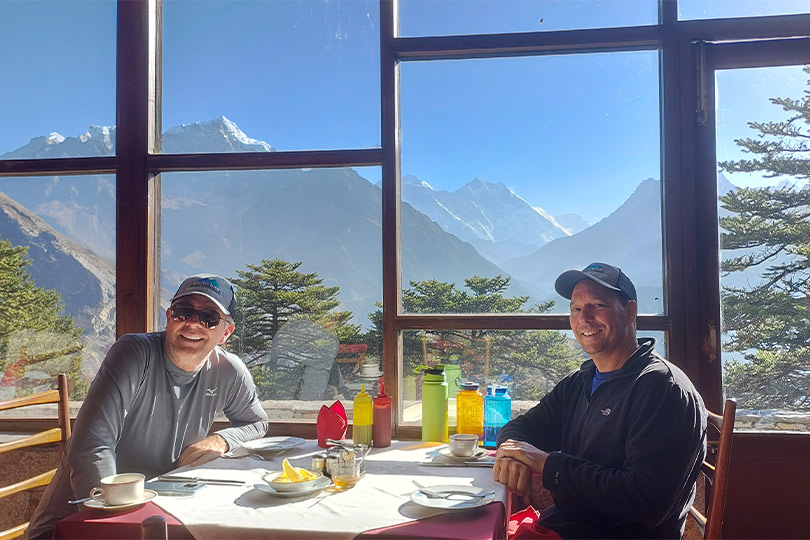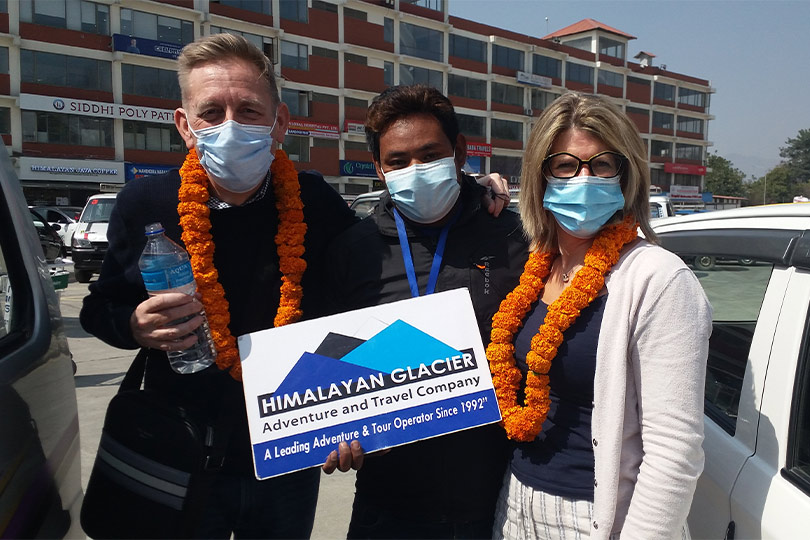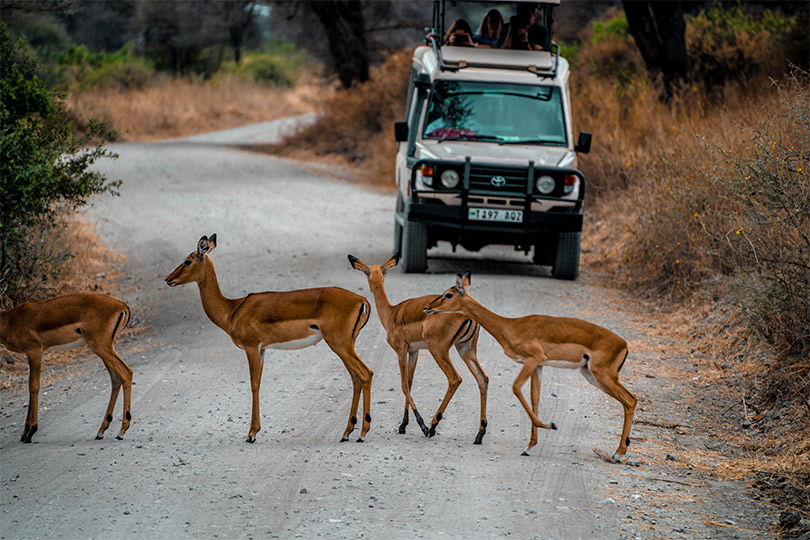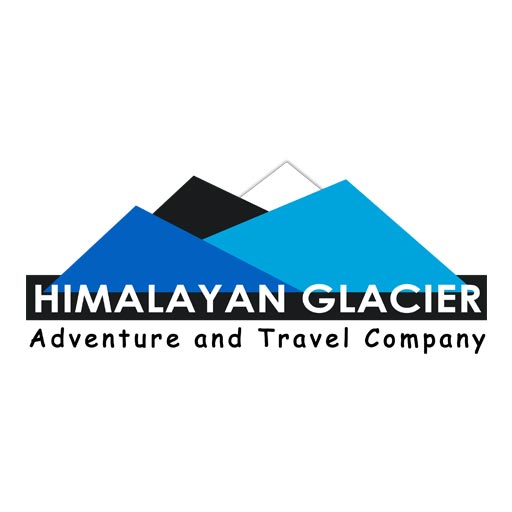After almost bringing travel and tourism to a near stand-still, travel has slowly leaped back although it may not be the same anymore, at least for quite a while. With rampant vaccination in place, the entire world is recovering bit by bit from the various impacts of the health pandemic. COVID test for travel could be mandatory at least for a few years from now.
When the world has reopened gradually, travelers are yet a little hesitant to get on an airplane. The numbers have drastically come down though there are some others dying to be back to their favorite getaways. Despite travel starting to pick pace, restoring confidence in traveling in a normal way may take some more time in the post-COVID world.
- Are you ready to adapt to the new normal travel style?
- POST-COVID TOURISM
-
10 ways travel will change after the pandemic
- 1. Sustainable tourism will play a vital role
- 2. Traveling will become more comprehensive
- 3. Quality and Safety will be the major focusses
- 4. Isolation Holidays will be the temporary ‘new normal’
- 5. Smaller communities will play a fundamental role
- 6. Fewer crowds will be expected at all major tourist hubs
- 7. Expectations of new standards for hotels
- 8. Demand for renowned travel operators will escalate
- 9. Travelers will begin re-planning their dream trips
- 10. Traveling could be high-priced for many at some major destinations
- Increase in conscious travelers after COVID-19
- How will my travel experience be different in the post-COVID times?
- Why does your Bucket List need revision?
Are you ready to adapt to the new normal travel style?
It is in fact, quite dynamic to observe things changing every single day and every week. A lot of optimism is there as people have started planning their ultimate adventure with Himalayan Glacier. There have been more future reservations for holidays and adventure than what we saw back before the onset of the pandemic. However, where to travel during COVID is a big question mark and travelers are still perplexed in making decisions.

POST-COVID TOURISM
The tourism industry has bounced back every time after major disasters including pandemics and epidemics like Ebola, MERS, and SARS. So, COVID-19 can’t be an exception to that. While businesses across various industries are looking forward to ‘normalcy in business’, the tourism industry can’t probably be excluded for sure.
The governments of most of the countries have now become a significant role player in reviving the economy of tourism. Transformations and assimilation of the tourism industry according to the latest rules have been helping to revive the industry. The scope of post-COVID tourism may still be vague, but it is certain that the collapse in travel will definitely bring long-term changes.
Tourism has been and will continue to be one of the sectors hit hardest by the pandemic especially in the Asia-Pacific and Western Hemisphere.
To ease the economic jolt in the Asia-Pacific, Western Hemisphere, and some other regions, the respective governments have taken necessary measures. But, it is certain that long-term industries will have to tweak to a post-pandemic ‘new normal’.
10 ways travel will change after the pandemic
The travel industry endured the most impact from the pandemic and global shutdown. This impact has had the stakeholders of the travel industry thinking about the future of travel. And, what does that mean for the future of travel? This little hiatus will probably give travelers the gift of time to consider how they can travel more determinedly. Here’s how big thinkers, travel enthusiasts, and adventure analysts have been speculating the 10 ways travel will change after the pandemic:

1. Sustainable tourism will play a vital role
The environmental bounce back with records of low nitrogen dioxide levels globally is one of the few benefits of the dreaded pandemic. It is most likely that the travelers will now take on the role of responsible citizens looking forward to sustainable travel policies. With no other options, the tourism industry needs to respond with active measures to focus on a healthy world over profit margins. While tourism recovery begins locally, sustainable tourism will play a vital role when the pandemic rests after saturation. Travelers will definitely make an impact by helping local communities by traveling sustainably and responsibly.
2. Traveling will become more comprehensive
After a screeching halt by the coronavirus pandemic, rebound in travel and tourism is on the cards, though it may not seem the same again. As far as it is obvious, the travel industry is moving ahead in the right direction and the hopes are still alive. Travelers will definitely tend to first embark out closer to home before an enduring demand for international travel returns. At the same time, most adventure companies will now address the needs of their diverse customers and acknowledge to all their prerequisites. To embolden comprehensive traveling, the operators will prioritize travelers and their needs over making marginal profits.

3. Quality and Safety will be the major focusses
Almost two years of distress and seclusion from the adventurous explorations, the quench for wanderlust has undoubtedly increased amongst travelers in more than two-folds. However, they probably have reconsidered ways of traveling around. Likewise, it is high time that agencies focus majorly on quality and safety of their customers. It is likely that travelers will opt to travel solo instead of joining groups anticipating excellence and welfare in return.
4. Isolation Holidays will be the temporary ‘new normal’
A whole lot of travelers will want to travel to places without much crowds for sure. Instead of the popular beaches, famed hiking trails or busy cities, they would prefer boutique hotels, quiet lakeside or mountain and more rural locations. Pristine natural environment and minimal footprint would obviously be on high demand immediately after the pandemic era. On the bottom line, more of the isolation holidays will be the temporary ‘new normal’.
5. Smaller communities will play a fundamental role
As a matter of fact, travelers can always make a huge difference in small towns that had already been toiling business-wise, even much before the pandemic. It is now anticipated that travelers will support lesser-known destinations by supporting local businesses and bequeathing to non-governmental organizations and nonprofit agencies. In such cases, smaller communities will play a fundamental role to promote diverse locations and avoid mass tourism.

6. Fewer crowds will be expected at all major tourist hubs
Out of self-consciousness, travelers will now try and avoid visiting the already swarming places and iconic landmarks that had been drawing crowds in the past. So, as travel reopens gradually, all those areas previously that remained crowded, especially in the peak seasons, are expected to receive lesser crowds. While it may not be the same in the hiking trails, but at places such as theme parks, museums and other popular spots the scenario would definitely be something different.
7. Expectations of new standards for hotels
It is, in fact, imperative that once people start traveling, they will be very cautious and choosy while picking their accommodation. Hoteliers, on the other hand, will focus on clearly communicating about what they are up to in keeping travelers safe. New methods of check-ins and check-out procedures may spring up with the application of new sanitary protocols. Likewise, travelers will also look out for hotels that guarantee their safety while still offering a pleasant experience. It is quite likely that hotels will opt in for digitizing the check-in process thereby reducing paper work and also reducing occupancy, thereby giving guests more space for physical distancing.
8. Demand for renowned travel operators will escalate
An intense roll over to booking through renowned travel operators will certainly be on the rise owing to their indispensable knowledge and professionalism. Travelers will think twice before booking their tour with just any cheap and unrecognized agencies. Adventurers will surely find a genuine and trustable travel advisor that maintains a database allowing travelers to look out for destination, type of journey, and other associates.
Possibly, adventurers will begin planning sustainable travel holidays aside from ensuring their safety roping in highly experienced guides.
9. Travelers will begin re-planning their dream trips
Living through a dreadful pandemic for quite a long time now has ignited most travel outfitters to re-evaluate travelers’ priorities and attitudes. It certainly is time now to make plans after what seemed eons for those adventurers confined to their homes during the drawn-out lockdown.
For those who can afford will possibly re-plan one of their epic life-time dream trips in the years ahead. There is a possibility that they will stay abroad for a much longer period of time than they had initially anticipated. On the contrary, budget travelers will surely take advantage using this time to dream up completing one of their trips on the bucket-list when prices have comparatively dropped down.

10. Traveling could be high-priced for many at some major destinations
Right from over-tourism, it didn’t take a long time to get into no-tourism for much of the world due to COVID-19 pandemic. Almost all businesses were ruined without the tourist inflow evidencing most of the global economy that depended on traveling. Now, with a flicker of light at the end of the tunnel for tourism, there arises two possibilities, rather two radically different trends. And, it is high time that we all stay prepared for it.
Firstly, some countries or local governments may remodel their tourism policies to shun away heavy crowds and keep more money in the local economy. They may even impose local regulations and many health protocols may become permanent. And secondly, some nations may compete for the reduced dollars by battling to the bottom and allow the travel sector to regulate itself. They may offer massive discounts to fill up hotel rooms or flights and once again bring around over-tourism.
Did you ever give it a thought?
In the post-COVID tourism era, personal hygiene and sanitation could stay permanently and always be on the top of the priorities.
Increase in conscious travelers after COVID-19
While the effects of the pandemic are still there, a strong craving for profound and sustainable travel seems to have gradually come forward. A recent survey done over Microsoft Bing users have brought out the following findings:
- 45% of adventure lovers are willing to visit places that they already know and desire to revisit.
- 39% of the travelers wish to go outdoors and indulge in activities such as hiking, trekking and wild-life safari tours.
- 26% of the remaining enthusiasts wish to visit art galleries, museums, heritage sites and get going with cultural tours.
While 69% of global travelers look forward to more sustainable options, 67% of them wish to support the recovery of the destinations they frequently visit, and 55% wish to observe how their expenses go back into supporting local communities.

With the increase in conscious travelers after COVID-19, the big question that lies ahead is: how can I travel safely during the pandemic. It is certain that travel won’t be the same, at least for quite some time, but perhaps that won’t either be a bad thing. Conscious travelers will now probably choose trips that really mean something to them. Those trips that are worth the effort and risk of making their journey to a foreign land.
Whilst the number of conscious travelers may increase gradually in the days ahead, it is imperative to understand what countries you can travel to if you are vaccinated for COVID-19. On the bottom line, the world has begun seeing travelers being just optimistic to travel to their favorite destinations once again. Trips such as Everest Base Camp trek have been constantly popular for 2021 – 2022 bookings. Likewise, trips like Mt. Kilimanjaro climb also have seen quite a rise in pre-bookings.
How will my travel experience be different in the post-COVID times?
After almost two years of isolation, it now seems as though the entire world is starting to get back. Also, things are slowly beginning to come back to normal. A question of concern to every avid traveler would be, “Will my travel experience be very different than in the past?” Here are some of the things that will definitely change making your travel experience certainly a bit different that it used to be in the past:
- Your packing list will certainly increase with additional items like face masks, hand sanitizers and other medical elements.
- Besides your passport, you need to carry other documents such as vaccination certificates, PCR test reports, etc.
- The queue at the immigration point will be comparably longer than it used to be before, calling you to arrive at the airport even much earlier.
- You will need that extra health and travel insurance while traveling to your dream destination.
- Air quality on the planes would be a matter of concern; people might be asking questions like “How safe is the air onboard?”
- Travel could be expensive as well as unpredictable for some more time.
- Surprisingly, your travel operators will seem to be more friendly giving you the options to choose the best.
- Ultimately, local communities will be more than happy to have you at their place.
However, certain trends are going back to normal. For instance, major U.S. airlines, including Delta and United, have tossed out mask requirements.
Why does your Bucket List need revision?
Here are few things to explain as to why your bucket list needs revision in the post pandemic times:
- Those destinations that you might have already ticked off, will certainly have new things to offer, at least until tourism bounces back in the global arena.
- Crowds will be comparatively lesser in the initial stages as people are still unwilling to travel freely (if you are already vaccinated, you need not worry a bit). Traveling to places like Everest base camp in Nepal and Mt. Kilimanjaro in Tanzania will offer you more time to savor the natural diversity.
- It is time that you encourage sustainable tourism while taking the advantage of the best times to experience local culture and traditions (local communities will be very grateful to receive foreign travelers).
- Some destinations may not remain the same if you delay in planning your trip any longer. For instance, Uhuru Peak in Tanzania is projected to cease to exist within 20 years, so why not make a rewarding once-in-a-lifetime trip out there now?
- Some destinations might be off-the limits to foreigners to bounce back to normal tourism. For instance, Upper Dolpo and Upper Mustang in Nepal were once restricted areas to foreign travelers. But with the ill effects of mass irresponsible tourism, these places might revert back to being restricted once again.
Plan an inclusive trip and make the most out of your budget
With ease in travel restrictions, it’s time that you start planning your ultimate adventure. Don’t just take a trip to one of your popular destinations to tick it off your bucket list. But, plan to spend time with the native people and discover their exotic culture, explore off-the-beaten treks for a unique experience. Overall, travel to make a positive impact!

A leading adventure & tour operator in the Himalayas since 1992, Himalayan Glacier Adventure & Travel Company® is the #1 guiding adventure travel company on Mount Everest Base Camp and beyond with 98% success rate. Each of our holidays is truly a tailor-made package which we design for all ages, groups, families & solo travelers.






